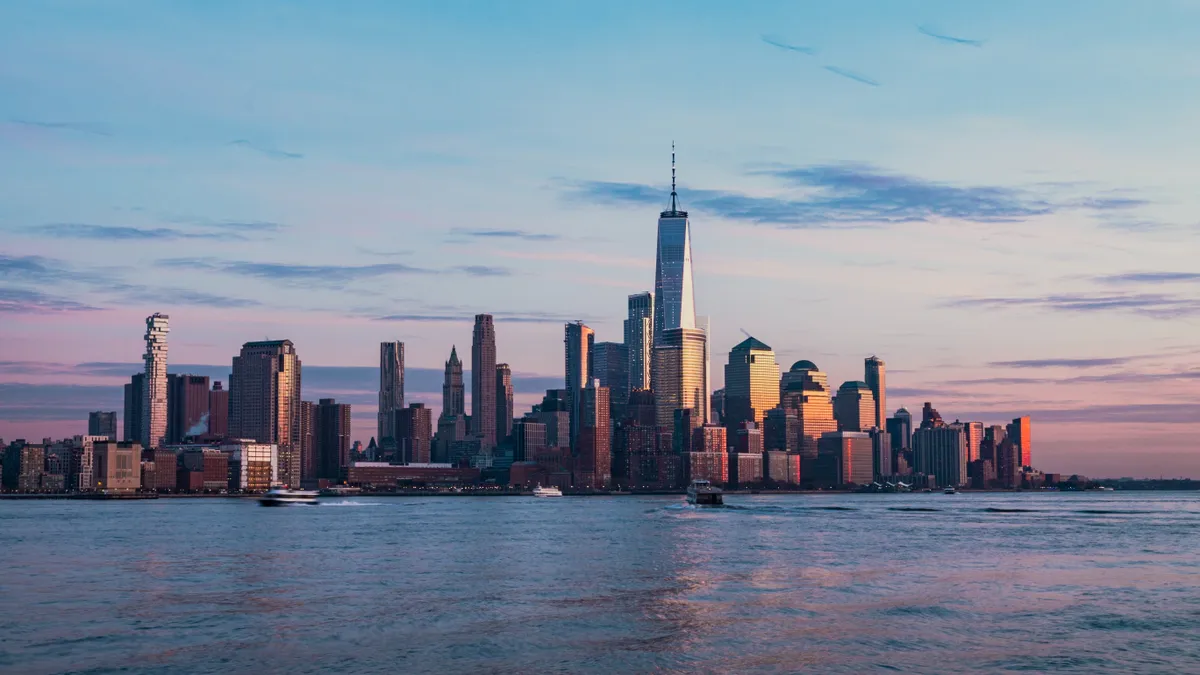Dive Brief:
- New York City will require all new and existing buildings to meet stricter energy efficiency requirements under a new energy code approved by the city council and passed by Mayor Bill de Blasio last week. The 2020 NYC Energy Conservation Code is part of the city’s implementation of its Green New Deal.
- Under the new code, builders will have to "improve the building thermal envelope" with better walls and windows to limit heat loss; better seal the envelope to control air leakage; and insulate balconies and parapets. Buildings will also have to meet tougher energy efficiency requirements for heating and cooling systems, and lighting control.
- Additionally, all one- and two-family homes will need infrastructure for future installation of electric vehicle chargers, and all buildings over 25,000 square feet will need whole building metering, which can help account for energy use and lead to more reductions.
Dive Insight:
Large buildings are the city’s greatest sources of greenhouse gas emissions, especially with an aging building stock that is less energy efficient. The city has increasingly targeted both new and existing buildings in its bid to achieve carbon neutrality by 2050. The sweeping Climate Mobilization Act that passed last spring set an ambitious goal of requiring all buildings over 25,000 square feet to cut climate emissions by 40% by 2030 and 80% by 2050, and in the fall the city selected nine facilities for "deep energy retrofits."
"New York City is leading the nation in our fight against global warming," said de Blasio in a statement. "Our new energy code will ensure that buildings — our city's biggest polluters — are held to the highest standard of sustainability and efficiency."
The new energy code is part of a suite of construction rules that is being updated by the Department of Buildings. It uses the 2020 New York State Energy Conservation Construction Code and the New York State Energy Research and Development Authority’s NYStretch Energy Code as a floor, but has tougher efficiency requirements.
It also comes as cities across the country are taking a closer look at rules to clean up their buildings. Boston is requiring that all new cities have a carbon-neutral design, and other governments have updated their own codes to meet carbon reduction goals. Berkeley, CA was the first city to ban natural gas hookups for new low-rise residential buildings in July 2019, and other cities like Brookline, MA have followed suit. Seattle is also considering its own ban.
Opponents to such a ban have included the Arizona legislature — backed by major utilities and homebuyers group — which is set to preempt local buildings from banning natural gas infrastructure in new buildings.
De Blasio announced earlier this month that New York would aim to phase out the use of natural gas and heating oil by 2040, but is not expected to move a ban similar to Berkeley’s, reports S&P Global.















